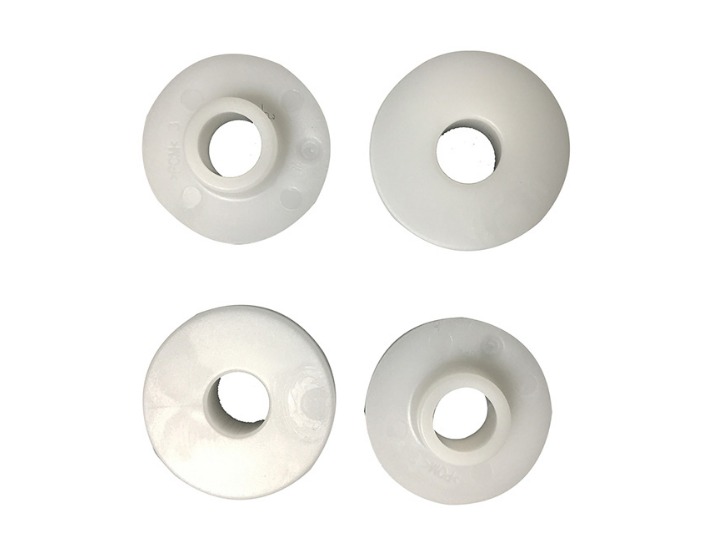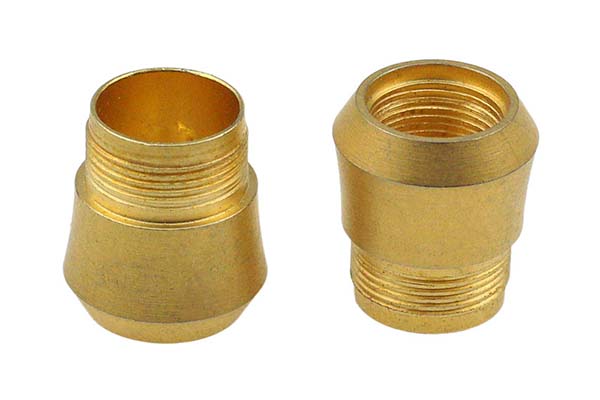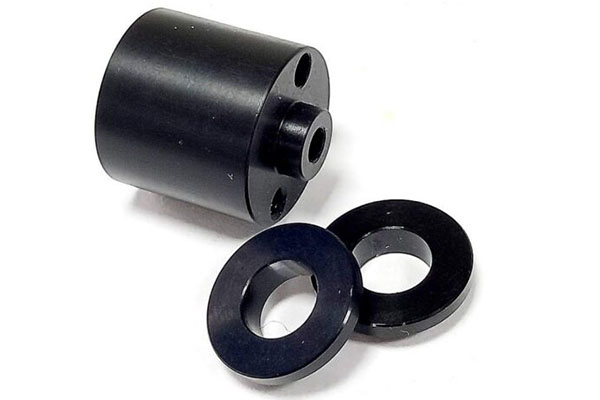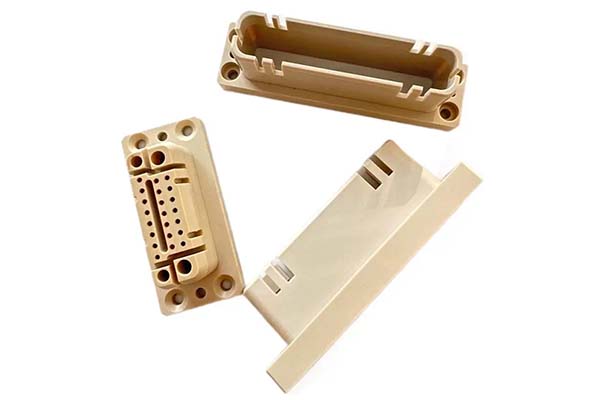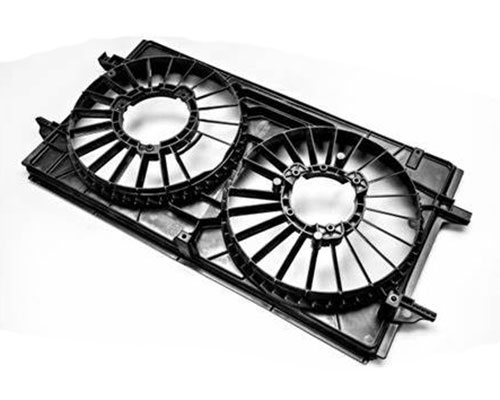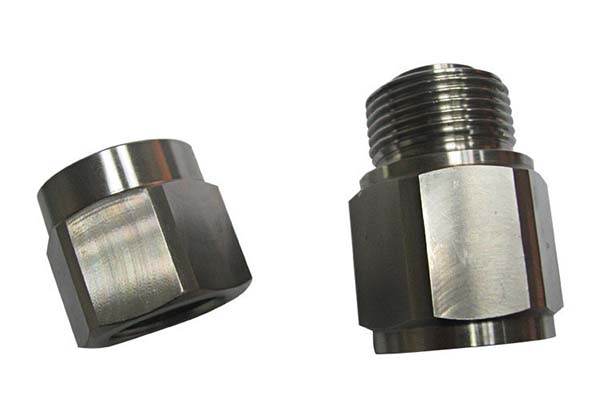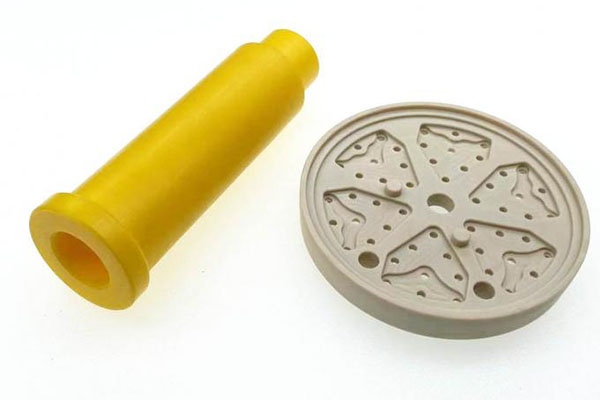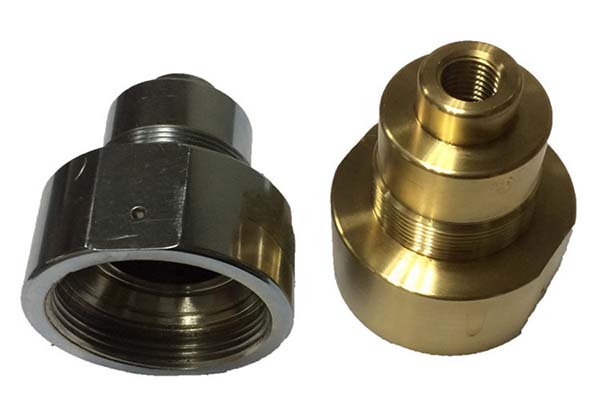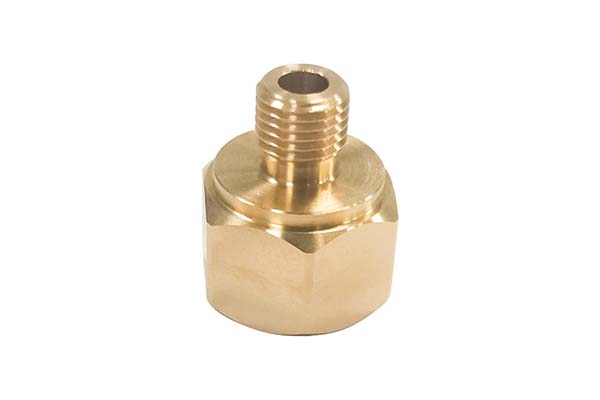Understanding Precision Machining
What is Precision Machining?
Precision machining is a high - accuracy mechanical processing process used to manufacture precise parts or components. It typically involves the use of advanced mechanical equipment and techniques to achieve extremely accurate dimensions, shapes, and surface quality requirements. In precision machining, tolerances can be held to within micrometers or even nanometers in some advanced cases. For Yigu Technology example, in the aerospace industry, parts for jet engines often require precision machining to ensure optimal performance. A slight deviation in the dimensions of a turbine blade could lead to inefficiencies, reduced fuel economy, or even catastrophic failures.
This process is crucial in modern manufacturing as it enables the production of components that are essential for high - tech industries. From the tiny components in medical devices like pacemakers to the complex parts in high - end automobiles, precision machining plays a fundamental role. It allows manufacturers to bring their innovative designs to life with the utmost accuracy, ensuring that products meet the strictest quality standards.
Why China for Precision Machining?
Cost - Effectiveness
One of the most compelling reasons to choose a precision machining company in China is cost - effectiveness. According to a report by the International Federation of Robotics, labor costs in China's manufacturing sector, although rising steadily, are still significantly lower compared to many Western countries. For instance, the hourly labor cost in the United States for precision machining - related jobs can be around \(30 - \)50, while in China, it is approximately \(5 - \)15. This cost difference allows Chinese precision machining companies to offer competitive pricing without sacrificing quality.
A case in point is a European automotive parts manufacturer that outsourced the production of precision - machined engine components to a Chinese company. By doing so, they reduced their production costs by 30% while maintaining the same high - quality standards. The Chinese company was able to achieve this cost - savings through efficient production processes, lower labor costs, and access to a large pool of local suppliers, which minimized material transportation costs.
Technological Advancements
China has made remarkable progress in precision machining technology in recent years. The country has been investing heavily in research and development, which has led to significant technological innovations. For Yigu Technology example, Chinese manufacturers have made great strides in high - speed and high - precision CNC machine tools. Some domestic - made CNC machines can now achieve positioning accuracies of up to ±0.001 mm, which is on par with the best - in - class machines from developed countries.
Moreover, China is also at the forefront in the development of advanced manufacturing technologies such as additive manufacturing (3D printing) in the context of precision machining. This technology enables the production of complex parts with high precision and reduced material waste. In the aerospace industry, Chinese companies are using 3D printing to create lightweight and high - strength components, which not only improves the performance of aircraft but also reduces fuel consumption.
Skilled Workforce
China has a vast and skilled workforce in the precision machining field. There are numerous vocational and technical schools across the country that offer specialized training programs in machining, mechatronics, and related fields. These institutions produce a large number of well - trained technicians and engineers every year. According to the Ministry of Education, over one million students graduate from vocational schools with relevant majors annually.
These trained professionals are proficient in operating advanced machining equipment, understanding complex technical drawings, and applying various precision machining techniques. Many of them have hands - on experience in working on large - scale industrial projects, which equips them with the skills and knowledge to handle the most demanding precision machining tasks. Their expertise, combined with a strong work ethic, makes them a valuable asset for precision machining companies in China.
Factors to Consider When Choosing a Precision Machining Company
Quality Assurance
Quality assurance is of utmost importance when selecting a precision machining company. A reliable company will have a comprehensive quality control process in place. This may include inspections at every stage of the production process, from raw material inspection to in - process checks and final product verification. For example, they might use advanced measuring tools such as coordinate measuring machines (CMMs) to ensure that the dimensions of the machined parts are within the specified tolerances. CMMs can measure with an accuracy of up to ±0.0001 mm, providing highly precise data for quality control.
Certifications are also a strong indicator of a company's commitment to quality. ISO 9001 is a widely recognized international standard for quality management systems. A precision machining company with ISO 9001 certification has demonstrated that it follows strict quality management principles, including customer - focused processes, continuous improvement, and effective leadership in quality management. In the aerospace precision machining industry, companies often need to comply with AS9100, which is specifically designed for the aviation, space, and defense industries. This standard has even more stringent requirements regarding quality management, traceability of materials, and process control to ensure the safety and reliability of components used in these high - risk applications.
Machining Capabilities
A good precision machining company should have a diverse range of machining capabilities. Here are some common ones:
| Machining Capability | Characteristics |
| CNC Milling | Can create complex 3D shapes. It is highly versatile and can work with a wide variety of materials. For example, it can be used to machine aluminum alloy parts for the automotive industry, where complex geometries for engine components are required. High - speed CNC milling can significantly reduce production time while maintaining high precision. |
| CNC Turning | Ideal for producing cylindrical parts with high precision. It is commonly used in the manufacturing of shafts, bolts, and other rotational components. The precision of CNC turning can reach tolerances as low as ±0.005 mm, making it suitable for applications where tight tolerances are crucial, such as in the medical device industry for manufacturing surgical instruments. |
| Grinding | Provides an extremely smooth surface finish. It is often used to improve the surface quality of parts that have already been machined by other methods. In the production of optical components, grinding is essential to achieve the required surface roughness for clear optical performance. Surface roughness values as low as Ra 0.01 μm can be achieved through precision grinding. |
| Wire EDM (Electrical Discharge Machining) | Can cut intricate shapes in hard materials without the need for traditional cutting tools. It is widely used in the mold - making industry for creating complex cavities and cores. For instance, in the production of molds for smartphone cases, wire EDM can accurately cut the fine details and sharp corners that are difficult to achieve with other machining methods. |
| Mold Making | Involves the production of molds for plastic injection molding, die - casting, etc. High - precision mold making requires strict control over dimensions and surface quality to ensure the quality of the final products. Molds for large - scale automotive plastic parts need to be extremely precise to ensure consistent production of high - quality parts. |
Material Expertise
The ability to handle different materials is another key factor. A precision machining company should be proficient in working with various metals such as aluminum, steel, titanium, and copper, as well as plastics like polycarbonate, ABS, and PEEK. Each material has its own unique properties that affect the machining process. For example, titanium is a strong and lightweight metal with high corrosion resistance, but it is also difficult to machine due to its low thermal conductivity. A company with expertise in machining titanium will know how to select the right cutting tools, cutting speeds, and feed rates to achieve optimal results without overheating the material or causing tool wear.
Material selection is also crucial. The wrong material choice can lead to product failure, increased production costs, or sub - optimal performance. In the electronics industry, for example, materials with high electrical conductivity like copper are often used for components such as printed circuit board (PCB) connectors. However, if the application requires a combination of electrical conductivity and corrosion resistance, a different material or a plated solution might be more appropriate. A knowledgeable precision machining company can provide valuable advice on material selection based on the specific requirements of the project.
Delivery Time and Logistics
Timely delivery is essential in today's fast - paced business environment. Delays in receiving precision - machined parts can disrupt entire production schedules and lead to costly downtime. A reliable precision machining company will have efficient production planning and scheduling systems in place to ensure that orders are completed and delivered on time. They will also have a good understanding of logistics, whether it's shipping within China or internationally. For international orders, they should be familiar with customs regulations, shipping documentation requirements, and different transportation methods (such as air freight for urgent orders or sea freight for larger and less time - sensitive shipments).
Some companies may also offer value - added services like just - in - time (JIT) delivery, where parts are delivered exactly when they are needed in the production process. This can help customers reduce inventory costs and improve overall supply chain efficiency. For example, an automotive assembly plant can benefit greatly from JIT delivery of precision - machined engine parts, as it eliminates the need to store large quantities of inventory and reduces the risk of parts becoming obsolete.
Customer Service and Technical Support
Good customer service and technical support can make a significant difference in the overall experience of working with a precision machining company. From the initial inquiry stage, the company's staff should be responsive, providing clear and detailed information about their services, capabilities, and pricing. During the production process, they should keep the customer informed about the progress of the order, promptly address any concerns or questions, and be willing to make adjustments if necessary.
Technical support is also crucial, especially for complex projects. A company with a team of experienced engineers and technicians can offer valuable advice on design optimization, manufacturability, and problem - solving. For example, if a customer's design has some features that are difficult to machine, the technical support team can suggest alternative designs or machining methods to achieve the desired results. After - sales support is equally important. The company should stand behind its products and be willing to provide assistance in case of any quality issues or product failures. This may include replacing defective parts, providing repair services, or offering technical guidance on product usage and maintenance.
Yigu Technology's Perspective
As a non - standard plastic metal products custom supplier, Yigu Technology deeply understands the significance of choosing the right precision machining company. In our experience, cooperation is the foundation of a successful project. A good precision machining company should be able to collaborate closely with customers, understanding their specific needs and providing tailored solutions.
Quality is our top priority. We ensure that every product we produce meets the highest quality standards. This includes using high - quality raw materials, advanced machining techniques, and strict quality control processes. Our quality control team conducts thorough inspections at every stage of production to eliminate any potential defects.
Exceptional customer service is also crucial. We are always ready to communicate with customers, provide prompt feedback, and solve problems in a timely manner. Whether it's pre - sales consultation, in - production updates, or after - sales support, we strive to make the entire process smooth and worry - free for our customers. We believe that by focusing on these aspects, we can build long - term and stable partnerships with our clients.
FAQ
Q1: How can I be sure of the quality of a precision machining company's products?
To ensure the quality of a precision machining company's products, you can take several steps. First, check if the company has relevant certifications such as ISO 9001. These certifications demonstrate that the company adheres to strict quality management standards. Second, ask for product samples or visit the company to inspect the products in person. You can also review the company's quality control process, which should include inspections at different production stages. Additionally, look at the company's customer reviews and case studies. Positive feedback from other customers and successful project cases are strong indicators of high - quality products.
Q2: What are the common materials used in precision machining?
Common materials used in precision machining include metals and plastics. Among metals, aluminum is popular due to its light weight, good corrosion resistance, and high machinability. It is widely used in the aerospace and automotive industries. Steel, especially stainless steel, is valued for its strength and corrosion resistance, making it suitable for applications like medical devices and food processing equipment. Titanium is another important metal, known for its high strength - to - weight ratio and excellent corrosion resistance, often used in aerospace and high - end sports equipment.
For plastics, polycarbonate is a common choice. It has high impact resistance, good dimensional stability, and transparency, making it suitable for applications such as electronic device housings and optical components. ABS (Acrylonitrile Butadiene Styrene) is also widely used. It has a good balance of strength, toughness, and processability, and is often found in consumer products like toys and household appliances. PEEK (Polyether - ether - ketone) is a high - performance plastic with excellent chemical resistance, high - temperature stability, and mechanical strength, used in aerospace, medical, and automotive applications where high - performance materials are required.
Q3: How long does it usually take for a precision machining company to complete an order?
The time it takes for a precision machining company to complete an order depends on several factors. The complexity of the parts is a major factor. Simple parts with basic geometries can usually be completed more quickly, perhaps within a few days to a week. In contrast, complex parts with intricate shapes and tight tolerances may take several weeks. The quantity of the order also matters. Larger orders generally require more production time. Additionally, the availability of raw materials and the company's current production workload can impact the delivery time. On average, for a standard order, it may take 1 - 4 weeks, but for more complex or large - scale orders, it could be 4 - 8 weeks or even longer.
